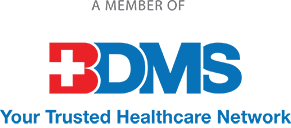Heart disease is one of the leading causes of death around the world. Fortunately, there are a number of actions you can take to reduce your risk.
1. Get regular physical exercise
Your heart is a muscle and just like any other muscle; it functions best if you exercise it properly. If you have a desk job that requires you to sit for most of the day, it’s important to build in time for regular cardiovascular activity that will get your heart rate up. This can include jogging, cycling, Muay Thai or even just vigorous walking. Most doctors recommend that you aim for at least 30 minutes per day, but if you are a healthy adult, you can likely do even more. Talk to your doctor to develop a workout routine that’s right for you.
2. Watch your weight
Obesity can lead to a host of medical conditions, including high blood pressure, diabetes and high cholesterol, all of which can increase your risk of cardiac arrest or a stroke. If you are overweight or obese, talk to your doctor about a diet and exercise plan to manage your weight.
3. Reduce your sodium intake
Unfortunately, a traditional Thai diet tends to be high in sodium, which in excess can lead to high blood pressure. You can cut down on the amount of sodium you consume by eating fewer processed foods and using low-sodium soy sauce, oyster sauce and fish sauce when cooking at home.
4. Eat heart-healthy fats
Contrary to what the fad diets of the ‘80s and ‘90s claimed, not all fat is bad for you. That being said, not all fats are created equal. Trans fats, which come from partially hydrogenated oils often found in processed foods, and saturated fats found in animal products, are generally considered poor choices for a healthy heart, while the mono- and polyunsaturated fats found in olive oil, avocados, nuts, seeds and seafood offer all sorts of benefits. Omega-3 fatty acids found in walnuts and oily fish are especially good for your heart.

5. Pay attention to your mental health
Anxiety, depression and undue stress can take a serious toll on your physical health and on your heart. Consider seeking professional counseling if you are struggling.
6. Stop smoking
Smoking ruins your teeth, your skin, your lungs, and, yes, your heart. Quitting is one of the best ways to improve your overall cardiac health. While it would be better never to have smoked at all, stopping at any point will still have an immediate and lasting positive effect.
7. Don’t drink too much
While the occasional glass of red wine may even be beneficial to your heart, most doctors agree that excessive drinking takes a negative toll on cardiovascular health.
